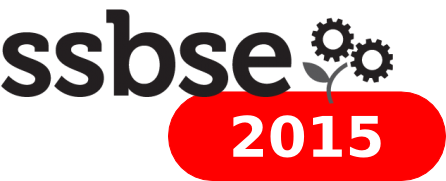SBSE Challenge Track provides a ground for researchers to try out their SBSE expertise against all or parts of a selection of real world applications. The goal is to analyse an on-going open source development project using your tools or techniques, to achieve practically interesting results. The best entry to the competition track will be awarded with a special prize.
Taking part in the challenge
In order to take part, you need to:
- Focus your investigation on one of the programs that we have selected (see below).
- Report your findings in a 6-page paper.
- Submit the challenge paper on or before the deadline (May 1, Midnight HST).
- If your paper is accepted, present your findings at SBSE 2014.
It is not mandatory for submissions to SBSE Challenge track to implement a new tool or technique. However, we do expect the results of the application of either existing or new tools & techniques to lead to practically interesting results and novel contributions to knowledge of the community. Entries will be reviewed by the PC members accordingly.
Challenge Programs
Participants are invited to investigate and report upon one of the following open source projects. You are free to focus on any particular version or a comparison of different versions; you can also choose to analyse, test, improve, or apply any other SBSE-based activities to either parts or the whole of a project, including source code, documentation, or any other related resources (bug database, versioning histories, online discussions, etc) that can be found online.
Guava () (Java)
Guava is a a collection of core Java libraries developed by Google. It implements many functionalities that Java applications often depend upon: caching, primitives support, concurrency, annotation, string manipulation, event monitoring, etc. The contains a git repository, an online issue tracker, and an online user guide.
Kate (http://kate-editor.org) (C/C++)
Kate is a multi-platform text editor with plug-in support, written in C/C++. The website for Kate project contains links to the git source repository, an online bug tracker, and a feature request list.
Django (https://www.djangoproject.com) (Python)
Django is a Python-based framework for rapid development of web-based applications. The website contains links to the , an online bug-tracker, and a wiki.
Your Report
Your report should describe the results of your findings. It should provide a brief introduction to the problem being addressed, the program that you used, your technique/tool, followed by your results, their implications and your conclusions.
Submission Details
The reports must be at most 6 pages long in PDF format and must conform at time of submission to the SSBSE/Springer LNCS format and submission guidelines.They must not have been previously published, or be in consideration for, any journal, book, or other conference. Please submit your challenge report to EasyChair on or before the Challenge track deadline (1st May 2015). At least one author of each paper is expected to present the results at SSBSE 2015. Papers for the Challenge track are not required to follow the double blind restrictions. All accepted contributions will be published in the conference electronic proceedings.
EasyChair SBSE Challenge Track Submission Page: https://easychair.org/
The acceptance criteria for this track can be summarised as follows:
- An SBSE approach is used to analyse at least one of the challenge programs
- The work is technically sound
- The paper provides clear results
- The work is not previously published or under consideration elsewhere
- The paper follows the standards of writing and formatting required by SSBSE
For more information
If you have any questions about the challenge, e-mail either Shin Yoo or Leandro Minku.

